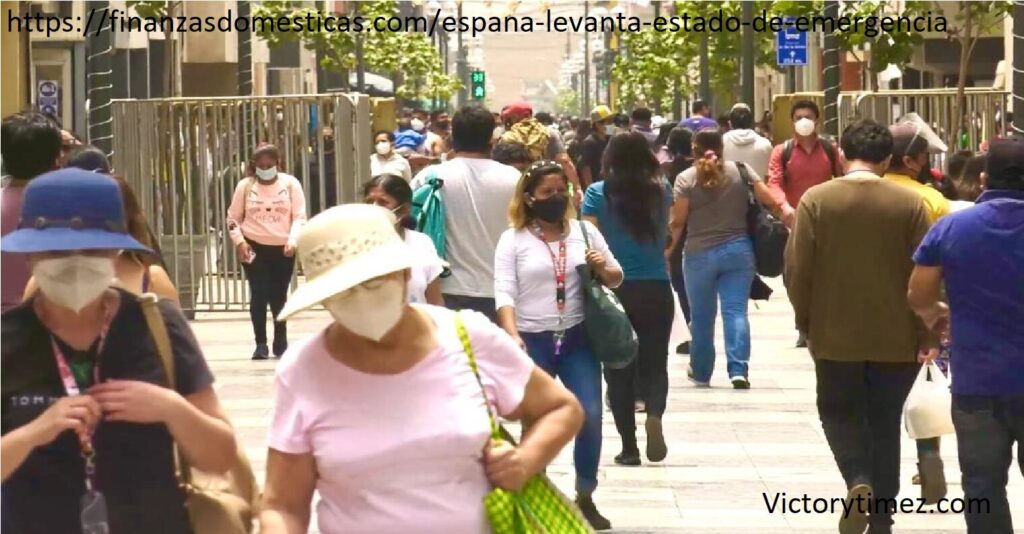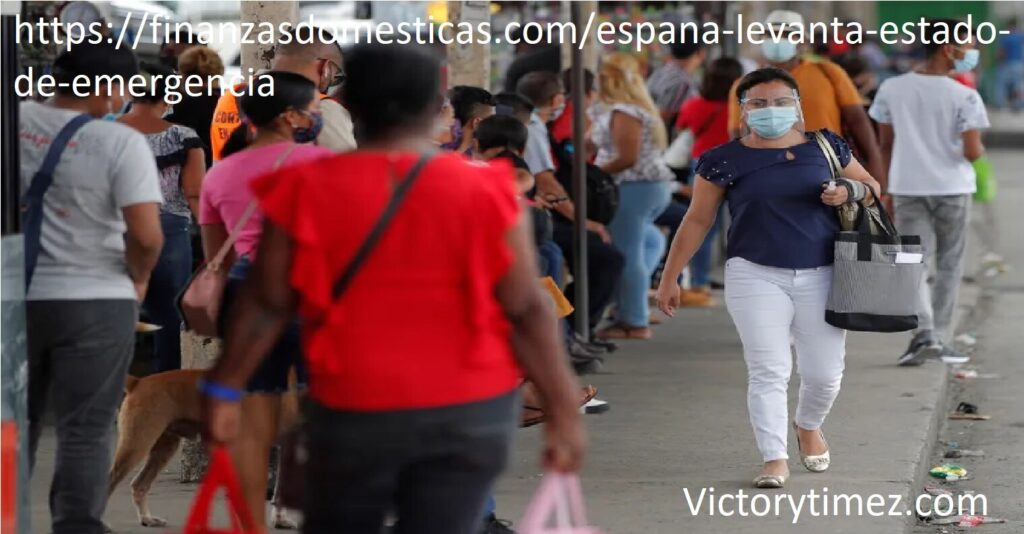
https://finanzasdomesticas.com/espana-levanta-estado-de-emergencia Spain has officially lifted its state of emergency, a significant move that marks a new chapter in the nation’s battle against the COVID-19 pandemic. This decision signals a shift towards normalcy, but it also raises questions about what this means for residents, businesses, and tourists. In this article, we’ll explore the reasons behind lifting the state of emergency, its implications, and what you need to know moving forward.
Overview of Spain’s State of Emergency
Spain’s state of emergency, known as “estado de alarma,” has a legal framework that allowed the government to implement extraordinary measures to curb the spread of COVID-19. https://finanzasdomesticas.com/espana-levanta-estado-de-emergencia These measures included restrictions on movement, social gatherings, and the operation of businesses. The state of emergency has first declared in March 2020 and has extended multiple times as the pandemic evolved.
The Decision to Lift the State of Emergency
The decision to lift the state of emergency comes after careful consideration of several factors, including the decrease in COVID-19 cases, the progress of the vaccination campaign, and growing public and political pressure. https://finanzasdomesticas.com/espana-levanta-estado-de-emergencia While this decision is a hopeful sign, it also comes with challenges and risks that the government and public must navigate carefully.
Initial Declaration and Response
Spain first declared a state of emergency on March 14, 2020, in response to the rapidly spreading COVID-19 virus. This initial declaration met with strict lockdown measures, including the closure of non-essential businesses and a nationwide curfew. https://finanzasdomesticas.com/espana-levanta-estado-de-emergencia
Extension of the State of Emergency
As the pandemic continued, Spain extended the state of emergency multiple times. Each extension brought with it new regulations, such as mask mandates, travel restrictions, and limits on social gatherings. https://finanzasdomesticas.com/espana-levanta-estado-de-emergenciaThe government’s goal was to control the virus while balancing the economic and social impacts of the restrictions.
Final Days Under Emergency Status
The final extension of the state of emergency lasted until May 2021. During these last weeks, restrictions have gradually eased as vaccination rates increased and the number of COVID-19 cases declined. The decision to lift the state of emergency marked the end of a challenging period for the nation. https://finanzasdomesticas.com/espana-levanta-estado-de-emergencia
The Impact of the State of Emergency on Spain

Economic Consequences
The state of emergency had a profound impact on Spain’s economy. Many businesses, especially in the tourism and hospitality sectors, suffered significant losses due to prolonged closures and reduced consumer spending. https://finanzasdomesticas.com/espana-levanta-estado-de-emergencia
Effects on Businesses
Small and medium-sized enterprises (SMEs) have among the hardest hit, with many struggling to stay afloat during the extended lockdowns. The government provided financial aid, but it was not enough to prevent widespread layoffs and closures.
Government Financial Aid
In response to the economic downturn, the Spanish government introduced several financial aid packages, including grants, loans, and tax relief for affected businesses. https://finanzasdomesticas.com/espana-levanta-estado-de-emergencia These measures provided some relief, but the road to recovery has been slow.
Social Implications
The state of emergency also had significant social implications. The restrictions on movement and social gatherings led to changes in daily life and had a lasting impact on mental health and well-being. https://finanzasdomesticas.com/espana-levanta-estado-de-emergencia
Changes in Daily Life
The pandemic forced people to adapt to new ways of living, from working from home to limiting social interactions. https://finanzasdomesticas.com/espana-levanta-estado-de-emergencia Public spaces like parks, restaurants, and theaters have either closed or operated under strict regulations, leading to a sense of isolation for many.
Mental Health and Well-being
The prolonged restrictions took a toll on mental health, with an increase in anxiety, depression, and other mental health issues reported across the country. The lifting of the state of emergency has been a relief for many, but the psychological effects of the pandemic are likely to linger.
Reasons Behind Lifting the State of Emergency
Improvements in COVID-19 Statistics
One of the primary reasons for lifting the state of emergency was the significant improvement in COVID-19 statistics. The number of new cases and hospitalizations has steadily declined, and the country’s healthcare system is no longer under the same level of strain as it was during the peak of the pandemic. https://finanzasdomesticas.com/espana-levanta-estado-de-emergencia
Decline in Cases and Hospitalizations
The decrease in COVID-19 cases and hospitalizations has attributed to several factors, including public health measures and the population’s adherence to safety guidelines. This decline has allowed the government to ease restrictions and begin the process of reopening the economy.
Vaccination Progress
Spain’s vaccination campaign has another key factor in the decision to lift the state of emergency. https://finanzasdomesticas.com/espana-levanta-estado-de-emergencia With a large percentage of the population vaccinated, the risk of severe illness and death has significantly reduced, allowing for a safer return to normal activities.
Public Pressure and Political Considerations
In addition to health metrics, public pressure and political considerations played a role in the decision to lift the state of emergency. Many Spaniards were eager to return to their pre-pandemic lives, and the government faced increasing demands to end the restrictions. https://finanzasdomesticas.com/espana-levanta-estado-de-emergencia
Public Protests and Sentiments
Throughout the pandemic, there have numerous protests against the restrictions, with many people arguing that the measures too severe and that they infringed on personal freedoms. The government had to balance public health concerns with the growing discontent among the population.
Government’s Strategic Decision
The decision to lift the state of emergency has also influenced by political factors. The government needed to show that it has responding to the needs and desires of the public while still prioritizing public health. https://finanzasdomesticas.com/espana-levanta-estado-de-emergencia This strategic decision has made with the hope of restoring public trust and moving the country forward.
What Changes After the State of Emergency?
Travel and Movement
With the state of emergency lifted, there have been significant changes to travel and movement within Spain and internationally. However, some restrictions remain in place to prevent a resurgence of the virus. https://finanzasdomesticas.com/espana-levanta-estado-de-emergencia
Domestic Travel Rules
Domestic travel within Spain has become easier, with most restrictions on movement between regions lifted. However, travelers has still advised to follow health guidelines, such as wearing masks in crowded places and maintaining social distancing.
International Travel Guidelines
International travel to and from Spain has also resumed, although travelers may still be subject to testing and quarantine requirements depending on their country of origin. https://finanzasdomesticas.com/espana-levanta-estado-de-emergencia The government continues to monitor the situation and may adjust travel guidelines as needed.
Social Gatherings and Events
Social gatherings and events once again permitted, but they are still subject to certain restrictions to ensure public safety.
Capacity Limits
While larger gatherings has now allowed, capacity limits are still in place for certain venues, such as theaters, concert halls, and sports arenas. These limits has intended to reduce the risk of virus transmission in crowded spaces.
Safety Protocols
Event organizers required to implement safety protocols, such as regular sanitization, ventilation, and the availability https://finanzasdomesticas.com/espana-levanta-estado-de-emergencia